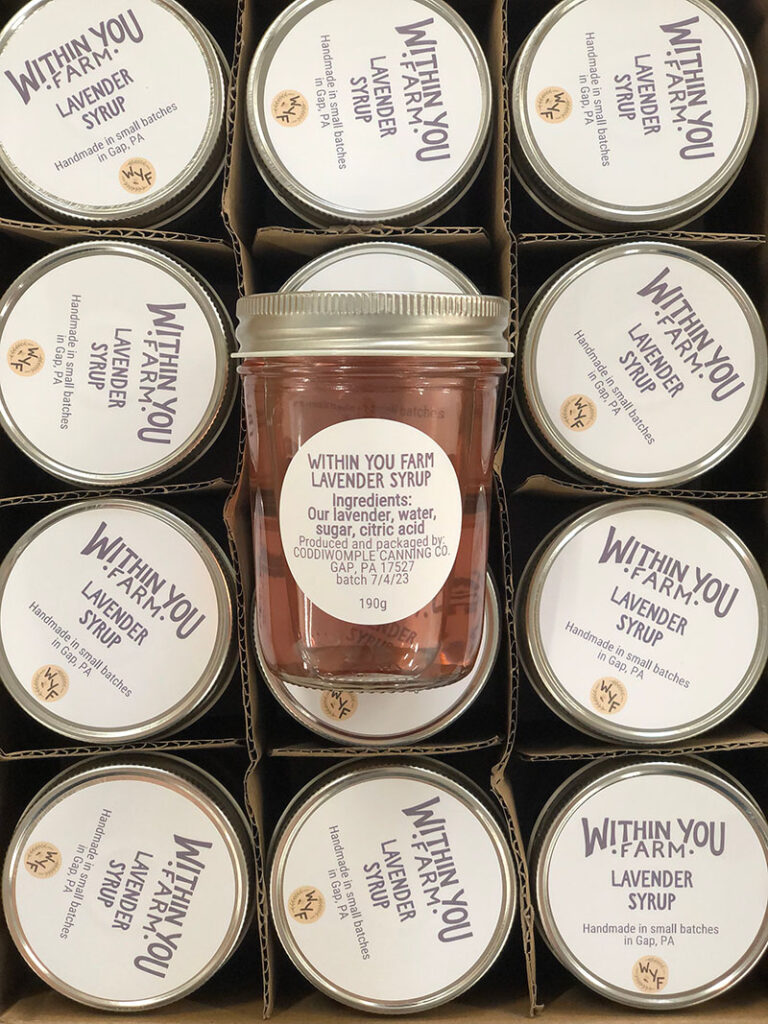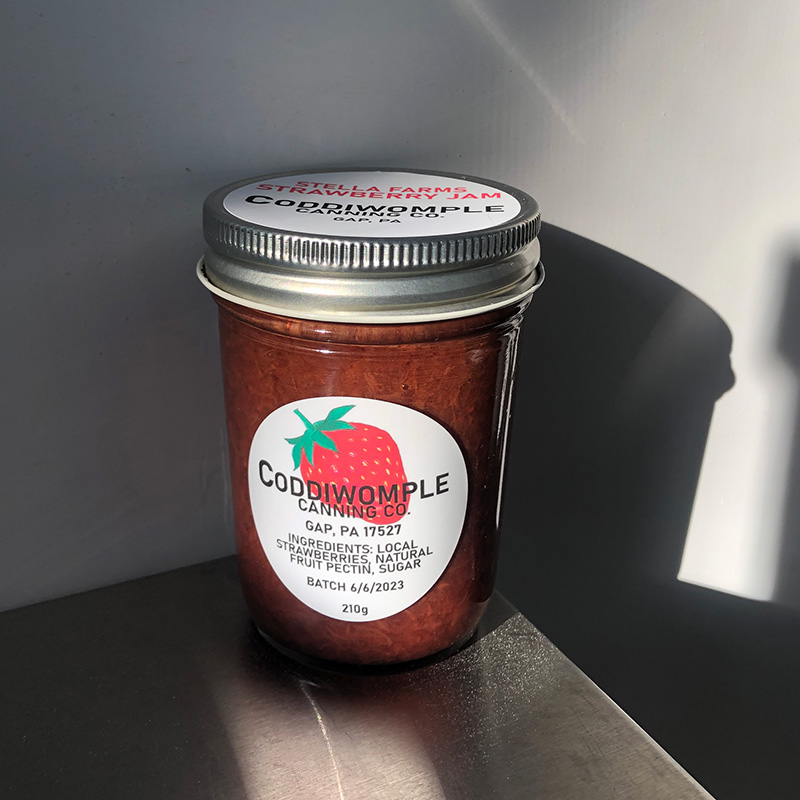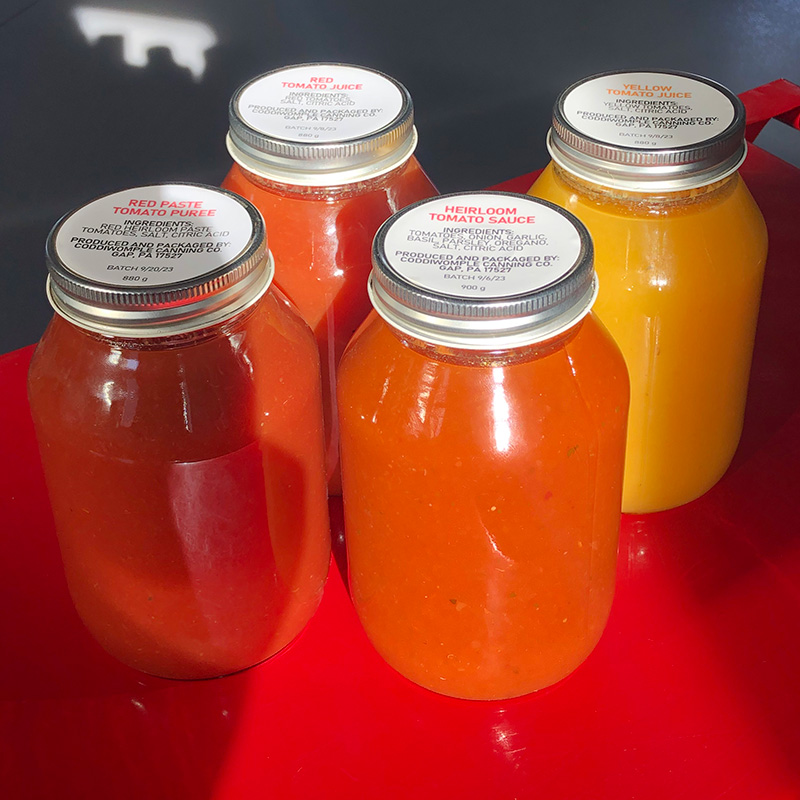Snail of Approval Spotlight – Coddiwomple Canning Company
BUSINESS: Coddiwomple Canning Company
LOCATION: Gap, Pa.
ESTABLISHED: 2017

We talked to Coddiwomple’s founders, husband and wife team Kimberly Harrington and Brian Cauley, both veterans of the restaurant industry, about their operation and its mission “to reduce food waste by preserving local produce into shelf-stable pantry staples.”
What’s a Coddiwomple?
It’s an English slang term that means “to travel with purpose towards a vague destination.” When we first started out we were doing a lot more foraging for wild edibles and rambling around looking for large batches to preserve, so the name kind of made sense.
Their origin story.
We started out making jams and jellies, some canned peaches, and dried spices, like garlic powder and smoked paprika. We were making them in a commissary in North Philly and then selling them at local farmers’ markets. We were both working in the restaurant business and it was kind of like a little side gig for us. But as we started building relationships with farmers, we realized they had a need for the kind of thing we were doing. It was in 2020 that we made our first initial push to go into preserving excess produce for farmers for them to sell at their own markets.
Unfortunately, the pandemic kind of put a hiccup in that, and the commissary we were working in had some zoning issues. In 2023 we moved to our kitchen here at Green Meadow Farm in Gap, Pa., about an hour and a half from the city. We still have our house in Philadelphia as our main residence, but luckily the farm has been nice enough to also rent us a little guest house on the property, so it’s not a daily commute for us.
It’s been a growth year.
We went into last year with about five farms, including Green Meadow, that we knew would be interested in hiring us to preserve their excess crops, and we ended up working with 20 farms by the end of the season. And it was all by word of mouth, with farmers telling other farmers about some of the services we provided and ideas that we helped them bring to market. We’ve been really fortunate to be in a market here that is just completely underserved. We don’t really have competitors that do the kind of consultations we do with farmers, helping them utilize what they have on hand and decide on the right products that they could sell.
What they make for farmers.
Lots of tomato products, like salsa, tomato puree, and marinara sauce. We also make jams and jellies, and a lot of different spices, dried herb blends, and all kinds of pickles. We’ve even done pickled quail eggs. We did a lot of lavender this year—lavender jelly, lavender syrup, and candied lavender. On the more exotic side, we make kimchi [spicy Korean fermented cabbage] for some farmers, and we recently did a project with pickled crosnes [pronounced “crones”]. It’s a French vegetable. It’s like a small tuber that looks like a sunchoke.

Their recipes are tailor-made.
We completely customize anything that we make for the farmer. If you want us to make sauerkraut, but you have your grandma’s recipe and she uses caraway seeds, or you really like garlic in yours, we can do that.
Also, because we have culinary backgrounds, we’re able to talk about other flavors that are possible or things that you can do besides the traditional ingredients, like swapping out an onion for something else in the onion family.
What also sets us apart from some other custom canners is we offer clear segregation of a farm’s products. We don’t take tomatoes from three farms, mix them in a pot, and then divvy out the sauce. We see it all the way through with just your product So when you’re getting a jar that says Rambling Roots Farm, it’s Rambling Roots produce only. That’s something that means a lot a lot to the farmers
Food preservation is a win/win.
For every perfect tomato a farmer brings to market there might be 10 that can’t be sold. Or maybe your cabbages got too big and no one wants to buy them, or you have a bumper crop of something and no market for it. Pretty much all of the produce we’ve worked with would have ended up left in the field or dumped in the compost without our services. These additional value-added products not only increase overall income and sales for farmers but also give them the ability to go to farmers’ markets in the wintertime when their selections are lean. One of the farms we work with that does the Rittenhouse Square market on Saturdays, actually went to market seven or eight times over the course of the winter, which is something they never ever did before.
—Eils Lotozo

